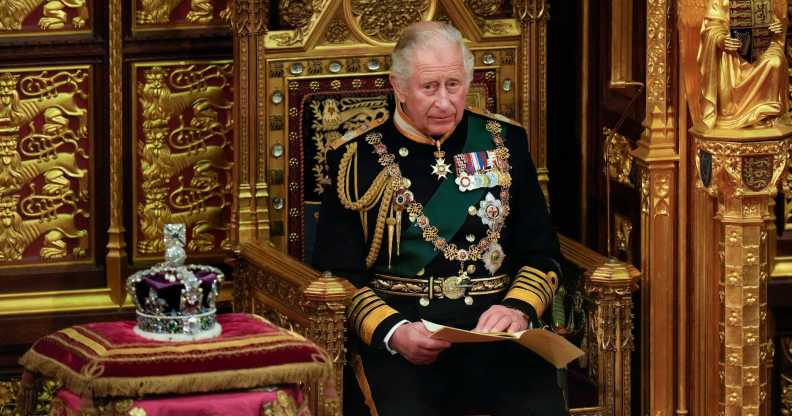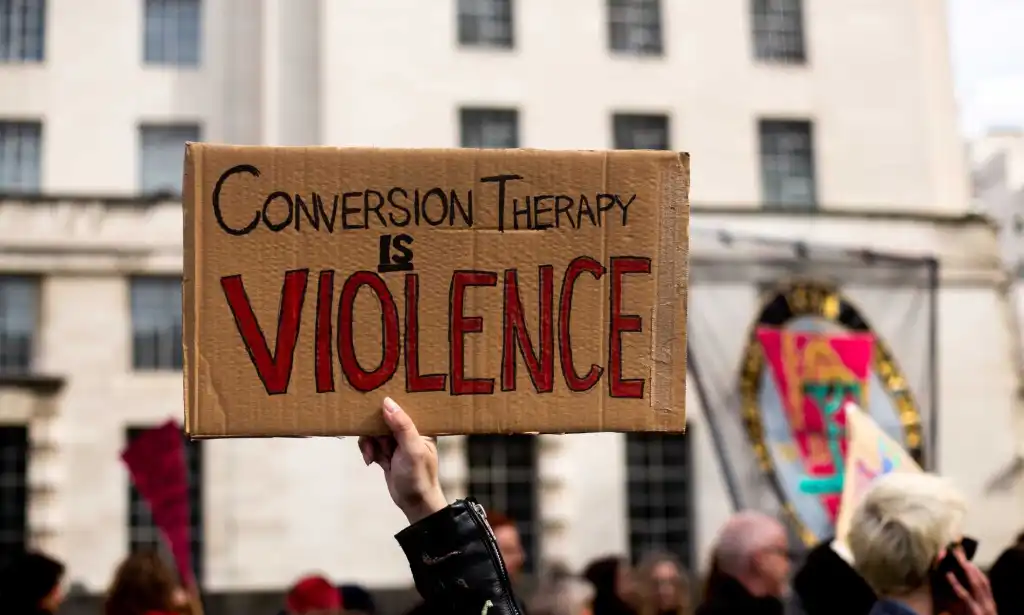LGBTQ conversion therapy ban will not be included in King’s Speech

A conversion therapy ban will not be included in King Charles III’s first King’s Speech. (Getty)
It is looking less and less likely that the abhorrent practice of so-called ‘conversion therapy’ will be banned before the next general election, as proposals have not been included in the upcoming King’s Speech.
Legislation to outlaw conversion practices was promised five years ago under Theresa May’s government but since then, and three prime ministers later, the Conservatives have dropped, reinstated, U-turned and delayed a ban.
In recent weeks, there has been speculation over whether a draft bill will be included in the King’s Speech on Tuesday (7 November), with Rishi Sunak’s government allegedly promising to have it in the speech before facing “intense” pushback from some MPs.
In a press release about the upcoming speech by Charles II – the first King’s speech in 70 years following the death of Elizabeth II – there was no mention on conversion therapy or a proposed ban.

It states that 39 bills were delivered in the previous parliamentary session and seven will be carried over to complete their passage, including the Digital Markets, Competition and Consumers Bill and Data Protection and Digital Information Bill.
“Ahead of the Autumn Statement later this month, the measures in the King’s Speech will build on the Prime Minister’s priority to grow the economy, safeguard our energy independence, ensure the UK is fully securing the benefits of Brexit and build the most competitive and supportive environment for businesses to capitalise on new technologies,” it reads.
“Together they will help ensure our country is more prosperous, more innovative, more secure, and ready to seize the bright future that the British people deserve.”
The measures which will be outlined in the speech also include “delivering record numbers of police officers”, training “more doctors, more nurses, more dentists and more GPs than ever before” and “promoting and protecting our national interests”.
On Saturday (4 November), following conversations with Whitehall sources, ITV News’ UK editor Paul Brand said it was “very unlikely” a conversion therapy ban will be passed before the next general election, which is due to take place no later than 28 January 2025.
“The long-promised ban on conversion therapy won’t be in the King’s Speech,” he wrote. “I understand the government thinks the shape of a ban isn’t ready yet.
“It’s been five years since the Conservatives first promised to ban it. Very unlikely it’ll now be banned before next election.”
Brand’s view was echoed in reporting by MailOnline’s political editor Jason Groves, who cited sources as saying “realistically, there is no chance of it becoming law this side of an election”.
“Ministers still don’t really have answers on what exactly needs to be made illegal that is not already illegal, and how you do that without trampling on the rights of parents, teachers and others to talk to children about their situation,” another source told him.
In response to the news, Tory MP Alicia Kearns – who has consistently called for a ban on conversion therapy – wrote in a thread on X: “To MPs who believe in Conversion Therapy & don’t accept it’s inherently abusive. Say it. Own that you believe LGBT people can be “converted”.
“The very least you can do is be honest w/those you’re imprisoning in a cycle of imposed shame & self-hate as you reinforce bigotry.”
She continued: “There are MPs who rightly care about getting the legislation right, both those of us who support a ban and those who don’t.
“But too many are constructing narratives to cover for the reality, they believe conversion therapy is a legitimate practice. Speak your truth.”
The continued lack of a ban will be a huge disappointment to activists, advocacy groups and wider members of the LGBTQ+ community.
How did this story make you feel?

